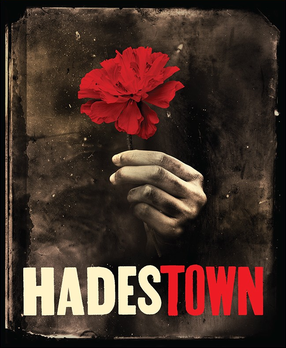Saul Rosenthal, PhD
Boston Area Health Psychologist
Doubt and Hope in Hadestown
*Spoilers ahead for the musical Hadestown*
I was fortunate enough to see Hadestown when it played in Boston. Anaïs Mitchell’s musical intertwines two classical myths. The main story focuses on Orpheus, a “poor boy” with the gift of music, and Eurydice, the “hungry young girl” who was a “a runaway from everywhere she’d ever been,” until the two meet. Their journey through life, death, and afterlife take place in the context of the conflicted relationship between Hades, King of the Underworld, and Persephone, part-time Goddess of the Spring and Summer, and part-time Queen of the Underworld.
I’m not the first to consider Hadestown (let alone the mythological figures involved) from a psychological perspective. Alisa Hurwitz writes about the play from a cognitive behavioral therapy perspective, while Fletcher Wortmann looks at the role that uncertainty plays in the many iterations of the Orpheus story. I urge you to read their analyses (after reading this one, of course!).
Doubt and hope are primary motivators in Hadestown. In particular, doubt, personified by the Fates, drives the action toward the inevitable tragedy. I can’t help but see parallels with the clients I treat. They suffer from anxiety, stress, or depression — the doubts that life is worthwhile. Thinking about the show afterwards, it occurred to me that the four lovers represent prototypical “problematic” responses to the distress that doubt unleashes.
In the show, Orpheus explicitly names what I think of as a basic conundrum of life, although he does not yet see it that way. He makes a toast to “the world we dream about, and the one we live in now.” To him, there is no meaningful difference between the two. However, that attitude blinds him to some significant challenges.
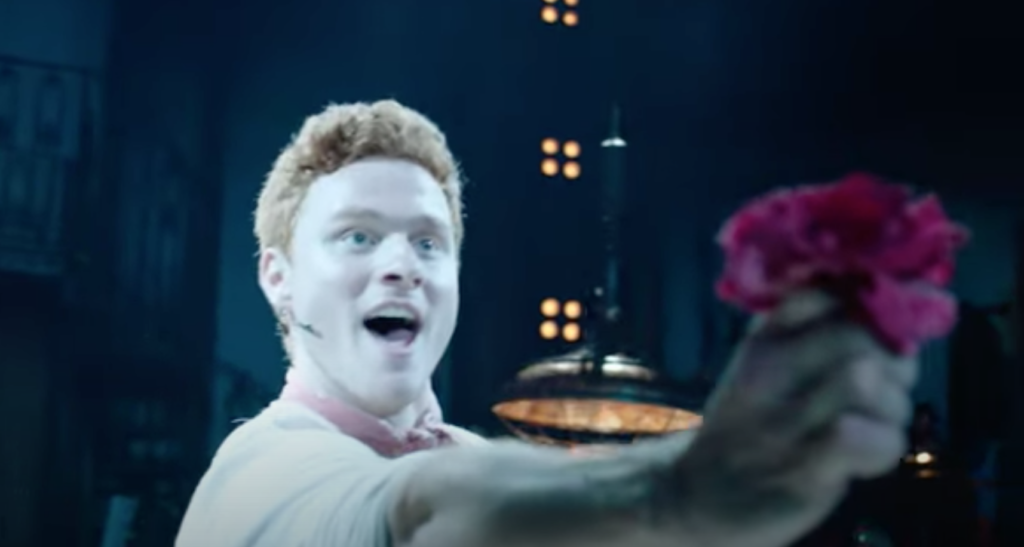
In fact, the world we dream about and the world we live in are often two very different things. The space between them is uncertainty. Frequently, that uncertainty space is filled with doubt. What if we can’t make the world what we dream of? What if we can’t handle the world as it is? Is that fair? Do I have any control?
It might seem that the obvious answer is to try changing something — change the world to make it more as we dream, or change ourselves to better fit into the world as it is. However, there’s a fundamental flaw in that plan.
Change is hard. And the hardest thing about change is that it forces us into that uncertainty space. That can be scary. In fact, it might be so scary that we do anything we can to get out of it as quickly as possible. We might make choices that feel better right away, but ultimately make things worse. It’s like jumping off the cliff to get away from the lion. But in this case, the lion is only a possible lion.
We all have let opportunities slip by, we all have run away when we know we should stay, we all have done things we regret. Doubt pushes us to make choices that are only about immediately escaping distress. However, avoiding pain is not always in our best interest. It hurts more to pull the bandage off quickly, but it’s better in the long run.
Anaïs Mitchell and Rachel Chavkin (the director) describe the Fates as bullies, forcing the characters to make bad choices. I’d like to expand that idea a bit. The Fates (and doubt) don’t actually force anybody to do anything. They do offer some quick solutions, but mostly they simply whip up the distress of uncertainty and let the characters make bad decisions on their own. Doubt whispers in the back of our minds, and our fears do the rest.
Oh, men are frail
Give them the rope and they’ll hang themselves
Hades doubts Persephone. She is gone for half the year, “Living it up” on the surface world. What is she up to? Will she come back? Uncertainty eats at him.
With doubt that she’ll ever come back
Dread that she’ll never come back
Doubt that his lover
Will ever come back
He cannot face it on his own, and he does not try to face it with her. Instead, he turns inward, focusing on constructing a wealthy and unassailable kingdom to distract from his pain. In so doing, he builds a literal wall to keep him safe, locking the world out. He turns his kingdom — and himself — into a harsh, empty shell. Exactly the opposite of what might draw Persephone closer to him and health their relationship. By trying to protect himself from the pain of his uncertainty, he damages the relationship even more.
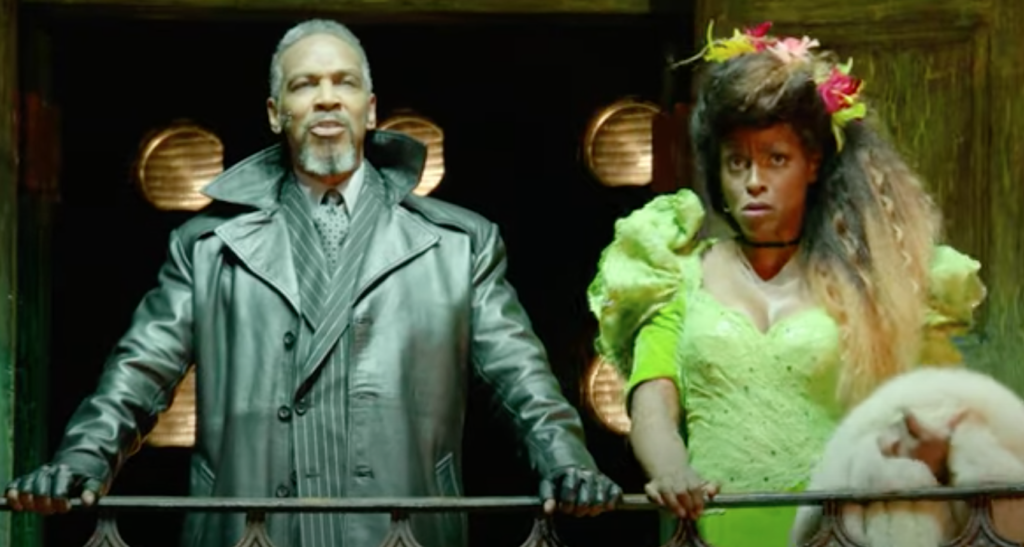
Persephone is condemned to spend half the year in Hadestown. She lives a half-life, happiest in the light, but bound by duty to return, every year, to the shadow. She does not live fully in either world, and so begins to lose herself. This difficult situation takes its toll, and over time she medicates herself in order to survive.
Give me morphine in a tin
Give me a crate of the fruit of the vine
Takes a lot of medicine
To make it through the wintertime
Numbing herself makes day-to-day life easier, but also makes it impossible to face her own doubts and problems, driving her even further apart from Hades.
Eurydice’s uncertainty is baked into her character from the beginning. Her life was always difficult. Where will she get her next meal? Who can she trust? Instead of facing the uncertainty of those questions, she runs, time and time again. She finds stability and love with Orpheus, but doubt — the Fates — is never far behind. The doubts grow, and she again runs. This time, away from her life, trading it for the certainty that Hades promises. In doing so, she loses everything.
Eurydice was a hungry young girl, but she
wasn’t hungry anymore
What she was instead, was dead
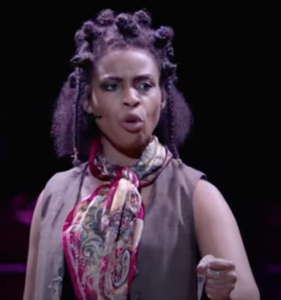
In the beginning, Orpheus seems to show no uncertainty. He is naive — simple, even. He has an utter certainty of the power of his music and the power of his love. He does not see the space between the world he dreams of and the one in which he lives, and therein lies the problem. We might not like that uncertainty space, but it is an inherent part of our experience. Denying it is unrealistic. The only way to face something is to accept that it exists. When Orpheus is finally confronted with doubt, he cannot handle it. He falters at the last moment, failing a test of faith, dooming Eurydice and himself.
Who do I think I am?
Who am I to think she would follow me
into the cold and dark again?
The doubts that all four protagonists feels is absolutely justified. Their lives are difficult and complicated. Like any of us, they make choices in order to escape pain and danger. But those choices ultimately make their situations worse. The doubt grows worse, the pain grows stronger, and they try even harder to escape. They are caught in a cycle of despair.
Hades hides himself from the world in order to avoid being hurt by it. Persephone numbs herself to the difficulties of her life. Eurydice flees from everything. Orpheus can not hold on to faith when it really matters.
We all do these things. We try to block out, escape, run away from, or ignore doubt. We listen to the Fates, in the backs of our heads, telling us we are heading to catastrophe and there is no way we can survive it. That anything is better than standing up to and experiencing our pain.
For my clients, this universal experience is often atypically intense and invasive. It crowds out the rest of their lives. It is seen in the parent who cannot bear the possibility of crashing the car when driving their child, so they keep their child at home. The young person who doubts their ability to manage a chronic illness, and so avoids all social activities. The singer so afraid of the possibility of cracking a note that they refuse to perform. The employee who is so consumed by the fear they may get stuck in the subway that they stop going to work.
How then, to break that cycle? To stop doubt from leading to actions that end up making the doubt worse?
In a word, Hope.
Hope is the mirror image of doubt. They both reflect an uncertain future. But where doubt pushes us to imagine a future of failure, hope invites us to imagine a future in which we flourish.
It is easier to doubt than to hope. Safer to imagine danger ahead and prepare for the worst. Hope is fleeting, doubt eternal. It takes more work to find and follow hope. But hope is what makes our travails worthwhile. The possibility of building that world we dream about. When we are trapped in the cycle of despair, it is even more vital to seek out hope wherever we can, often from outside of ourselves. For Hades and Persephone, they find it in Orpheus and Eurydice.
The love between the young couple, and Orpheus’s song reminds Persephone and Hades that there was a time they hoped for better. From each other and themselves. They are both able to grab on to that hope, and pull themselves out of the morass of their doubts. They remember the world they dreamed about together and, in the end, begin making choices that will lead them towards it.
Where is the treasure inside of your chest?
Where is your pleasure? Where is your youth?
Where is the man with his arms outstretched?
To the woman he loves
With nothing to lose
In return, Hades offers the same to the younger couple. A chance for redemption. Initially, he wants to let them go, but the Fates needle him, calling him weak if he frees them, warning him that such action will surely lead to rebellion and the loss of his kingdom. It would be much better if he keeps them both imprisoned. That would show the world and his people that he is no coward. They prey on his fears. But they are not entirely successful.
Hades does not let them go scott free. After all, Eurydice voluntarily traded her life away, and Orpheus trespassed where the living should not go. Instead, Hades finds a middle ground. He declares that they can go free, but only if Orpheus successfully leads Eurydice out of the underworld, without looking back to be certain she is following.
This will be a difficult journey for Orpheus. He never until then considered that the world he dreams about might not quite match up with the world he lives in. Never bothered by doubt before, he suddenly has to trust in a god who has shown little more than contempt, and a wife who left him.
But, they have a chance. In a world of uncertainty, what more can anyone expect?
The Fates know how hard this will be, and they dog Orpheus every step along the way.
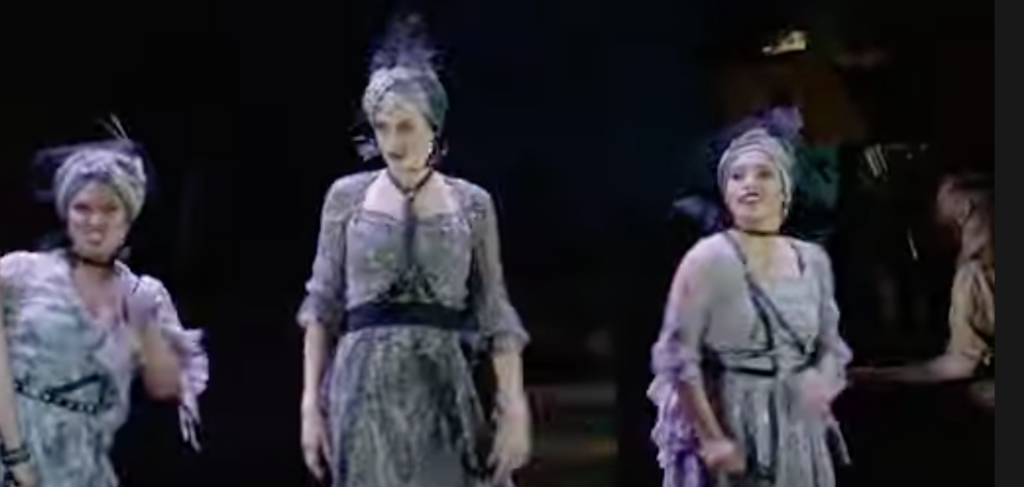
Doubt comes in
The wind is changing
Doubt comes in
How cold it’s blowing
Doubt comes in
And meets a stranger
Walking on a road alone
Where is she?
Where is she now?
Doubt comes in
The journey through darkness is arduous. Orpheus must forge ahead, never certain whether Eurydice is following. The tragedy, of course, is that in the end, it proves to be too much. For Orpheus and Eurydice, doubt wins, and hope falters.
It’s a sad song
It’s a sad tale
It’s a tragedy
That happens. To all of us.
Hope does not seem to play much of a role in Hadestown. Love fails. Eurydice stays dead. Orpheus loses his reason to live. Doubt seems to prevail.
But then Hermes, Messenger of the Gods, drives home the point of it all. Hope is always there, whether we know it or not. But we need to work at it. We need to keep trying, even in the face of defeat.
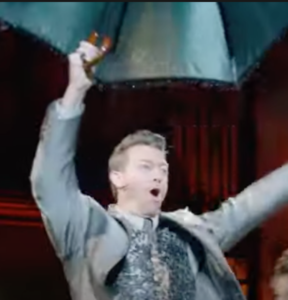
‘Cause here’s the thing
To know how it ends
And still begin to sing it again
As if it might turn out this time
Supposing that Orpheus holds onto hope for a few more minutes? Or Eurydice decides to trust her heart? Or Hades shares his fears with Persephone? Or Persephone accepts the difficulties in her life?
Think about how much better small but meaningful changes might make in the story. If only they would trust in hope, regardless of the work it takes, the chances it demands, and the failures they endure. That is the only way to reap hope’s rewards.
Hadestown implores us to never give up. To keep trying, even with all the sadness and tragedy of our lives. How much better might our own stories be if we answer to hope rather than doubt? If we take just one step more than doubt tells us we can take? That path is the one that makes the world we live in a little more like the one we dream about.
It’s an old song
It’s an old tale from way back when
And we’re gonna sing it again and again
We’re gonna sing it again
Saul R December 11th, 2021
Posted In: Movies, Television, and Theater, Musings, Psychology

